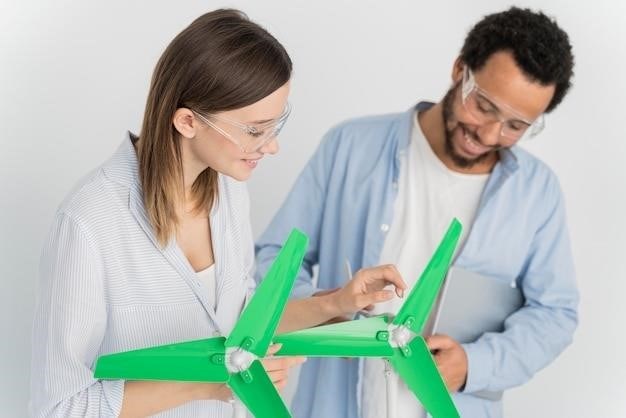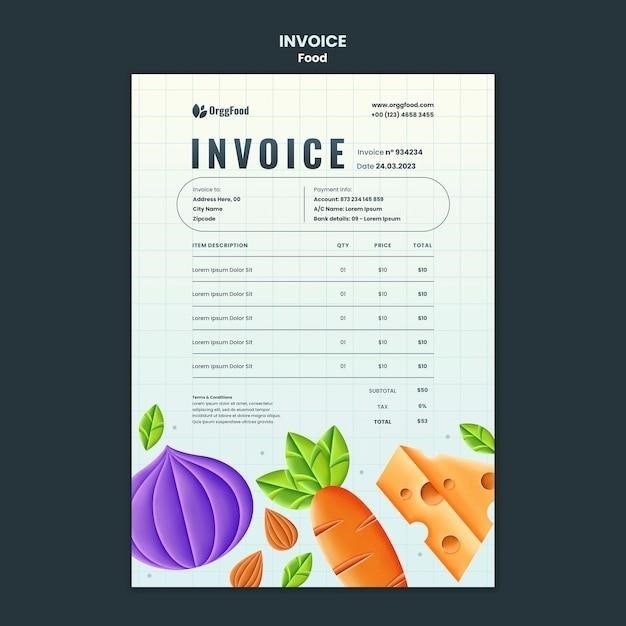The Successful Occupational Therapy Fieldwork Student
This guide helps occupational therapy students thrive in fieldwork. It bridges theory and practice, offering strategies for success and navigating challenges. Resources and mentorship are highlighted, promoting self-efficacy and professional development. Download your free copy today!
Understanding Fieldwork in Occupational Therapy
Occupational therapy fieldwork is a crucial component of the educational journey, bridging the gap between theoretical knowledge acquired in the classroom and practical application in real-world settings. It’s a practice-based learning experience, integrating academic knowledge with hands-on clinical practice. Unlike internships or clinical rotations, fieldwork in occupational therapy encompasses diverse settings where therapists work, providing students with exposure to various populations and therapeutic approaches. This immersive experience allows students to fully assimilate and apply information and skills learned, solidifying their understanding of the occupational therapy process. The fieldwork curriculum is designed to build upon prior learning and laboratory experiences, progressively developing competence and confidence. Successful completion of fieldwork is essential for graduation and licensure, marking a significant step towards becoming a qualified occupational therapist. It’s a dynamic period of growth, offering valuable opportunities for mentoring, professional development, and building a strong foundation for a successful career.
The Importance of Fieldwork in the OT Curriculum
Fieldwork is paramount in occupational therapy education, providing the essential link between theoretical learning and practical application. It’s not merely an addendum to the curriculum but a cornerstone, offering students invaluable real-world experience. The immersive nature of fieldwork allows students to translate classroom knowledge into tangible skills, working directly with clients under the supervision of experienced practitioners. This practical application solidifies understanding of assessment techniques, intervention strategies, and ethical considerations. Fieldwork also cultivates essential professional attributes, including critical thinking, problem-solving, communication, and teamwork. It fosters the development of clinical reasoning and judgment, crucial for effective practice. Furthermore, fieldwork exposes students to diverse practice settings and populations, broadening their understanding of the profession’s scope and fostering adaptability. The structured nature of fieldwork, often including detailed workbooks and regular evaluations, provides valuable feedback and guidance, ensuring students are well-prepared for entry-level practice. This structured learning environment within the fieldwork experience directly contributes to the development of competent and confident occupational therapists.
Bridging Theory and Practice⁚ The Role of Fieldwork
Occupational therapy fieldwork serves as a crucial bridge, seamlessly connecting the theoretical knowledge acquired in the classroom with the practical realities of client care. This transition is not simply about applying pre-learned concepts; fieldwork actively shapes and refines understanding through direct experience. Students encounter diverse client needs and situations, prompting critical thinking and problem-solving skills development beyond textbook scenarios. The supervised environment allows for immediate feedback and guidance from experienced clinicians, ensuring that theoretical frameworks translate into safe and effective practice. This iterative process of learning-by-doing fosters a deeper comprehension of occupational therapy principles and their application in real-world contexts. Fieldwork necessitates collaboration with interdisciplinary teams, emphasizing the importance of communication and teamwork. The challenges and successes encountered during fieldwork enhance clinical reasoning skills, building a robust foundation for future practice. Ultimately, fieldwork transforms theoretical knowledge into practical expertise, fostering professional confidence and competence.

Preparing for Occupational Therapy Fieldwork
Successful fieldwork requires preparation. This section details essential skills, resource utilization, and time management strategies for occupational therapy students. A structured approach ensures a smooth transition into practical experience.
Essential Skills and Knowledge for Success
Mastering fundamental occupational therapy skills is paramount for fieldwork success. Proficiency in assessment techniques, including observation, interviewing, and standardized testing, is crucial. A strong understanding of the occupational therapy process—evaluation, intervention planning, implementation, and outcome measurement—is essential. Knowledge of various theoretical frameworks, such as the Model of Human Occupation (MOHO) or the Canadian Model of Occupational Performance (CMOP), provides a foundation for individualized client-centered care. Furthermore, strong interpersonal and communication skills are vital for effective collaboration with clients, families, and other healthcare professionals. Familiarity with relevant documentation procedures, including electronic health records (EHRs), ensures accurate and efficient record-keeping. Finally, a commitment to ethical practice, including confidentiality, informed consent, and adherence to professional standards, is non-negotiable. This robust skillset and knowledge base equip students to excel in fieldwork and beyond.
Utilizing Fieldwork Workbooks and Resources
Fieldwork workbooks serve as invaluable tools for organizing and reflecting upon experiences. These resources often integrate academic knowledge with practical application, guiding students through the occupational therapy process within diverse clinical settings. Effective use involves consistent documentation of client interactions, treatment plans, and progress notes. Workbooks often include sections for self-reflection, prompting critical analysis of interventions and professional growth. Supplementing workbooks with additional resources, such as professional journals, textbooks, and online databases, broadens knowledge and enhances understanding of complex cases. Active engagement with fieldwork supervisors through regular meetings and seeking feedback ensures alignment with learning objectives. Leveraging these resources fosters a structured approach to learning, facilitates a deeper understanding of occupational therapy practice, and enhances the overall fieldwork experience, leading to a more successful and rewarding clinical journey.
Time Management and Organizational Strategies
Effective time management is crucial for occupational therapy fieldwork success. Students should create a realistic schedule that balances fieldwork responsibilities, academic commitments, and personal life. Prioritizing tasks and using time-blocking techniques can improve efficiency. Utilizing digital calendars and task management tools helps maintain organization. Effective note-taking during fieldwork sessions ensures accurate documentation and aids in reflection. Regular review of learning objectives and fieldwork expectations keeps students focused on goals. Proactive communication with fieldwork educators helps address potential scheduling conflicts or challenges. Breaking down large projects into smaller, manageable tasks prevents feeling overwhelmed. Building in buffer time for unexpected events or delays minimizes stress. Maintaining a consistent work-life balance prevents burnout and promotes well-being throughout the fieldwork experience. These strategies contribute significantly to a productive and successful fieldwork journey.

Navigating the Fieldwork Experience
This section explores the challenges and triumphs of fieldwork. Discover strategies for overcoming obstacles, building confidence, and maximizing learning opportunities. Gain insights into mentorship, reflective practice, and professional growth within the field of occupational therapy. Download the guide now!
Overcoming Challenges and Building Self-Efficacy
Fieldwork presents numerous challenges; however, successful students develop effective coping mechanisms. Time management and organization are crucial, requiring meticulous planning and prioritization of tasks. Unexpected situations, such as patient cancellations or equipment malfunctions, demand adaptability and resourcefulness. Effective communication with supervisors and fellow team members is paramount in navigating these difficulties. Students should actively seek feedback, viewing constructive criticism as an opportunity for growth. Self-reflection, a critical component of professional development, allows students to identify areas for improvement and build self-confidence. Maintaining a positive attitude, celebrating small victories, and focusing on continuous learning are essential for building self-efficacy and successfully navigating the complexities of fieldwork. This free downloadable guide provides practical strategies to overcome common hurdles, fostering resilience and promoting a positive fieldwork experience. Remember, seeking support from mentors and peers is vital in building confidence and navigating challenging situations.
Seeking Mentorship and Feedback from Educators
Mentorship is invaluable during fieldwork. Establish a strong rapport with your fieldwork educator, fostering open communication and a comfortable environment for seeking guidance. Regularly scheduled meetings provide opportunities to discuss progress, address concerns, and receive constructive feedback. Don’t hesitate to ask clarifying questions; understanding expectations is key to success. Actively solicit feedback on your performance, both positive and critical. View feedback as a tool for growth and improvement, not as a judgment of your capabilities. Embrace opportunities for observation and learning from experienced therapists. Engage in reflective practice, journaling your experiences and analyzing your performance to identify areas requiring further development. Your fieldwork educator is a valuable resource; utilize their expertise to enhance your learning and professional growth. This free downloadable PDF offers further guidance on maximizing mentorship opportunities and leveraging feedback for professional development. Remember, proactive communication and a willingness to learn are essential for successful fieldwork.
Reflecting on Experiences and Professional Development
Consistent self-reflection is crucial for growth as an occupational therapy student. Maintain a journal to document daily experiences, noting both successes and challenges encountered during fieldwork. Analyze these experiences, identifying patterns, and extracting valuable lessons learned. Consider how theoretical knowledge translates into practical application, and note instances where your skills need refinement. Regularly review your fieldwork learning objectives, assessing your progress and identifying areas requiring additional focus. Engage in critical self-assessment, honestly evaluating your strengths and weaknesses. Seek feedback from your fieldwork educator to gain external perspectives on your performance. Use this feedback to refine your skills and improve your professional practice. This reflective process is integral to professional development; it facilitates learning, improves self-awareness, and enhances your ability to adapt and grow in future clinical settings. The free downloadable PDF provides structured prompts and strategies to enhance your reflective practice, fostering continuous professional growth and development.


0 Comments